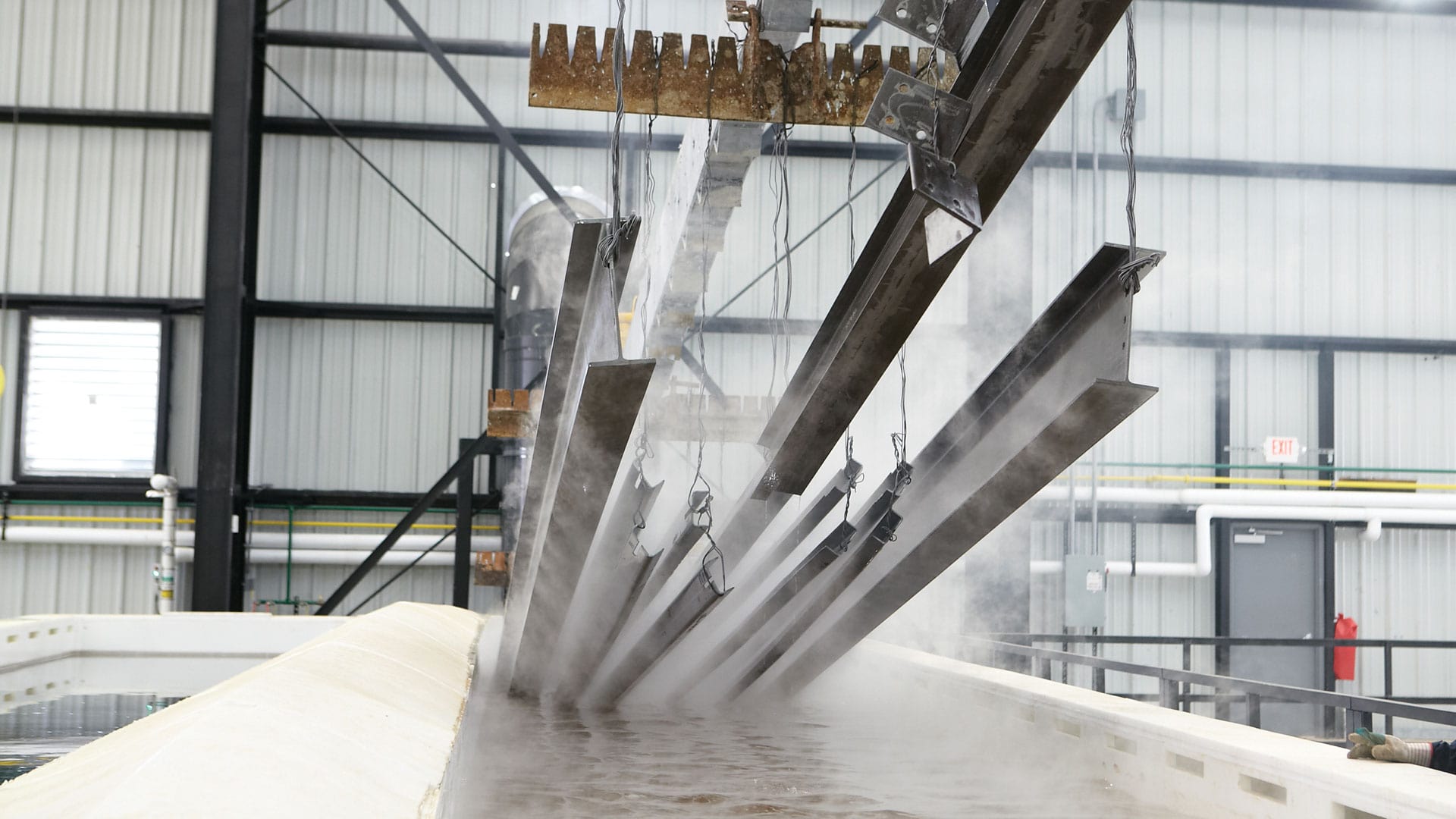What Is Galvanized Steel Plumbing?
Galvanized steel plumbing is steel pipes and fittings coated with zinc, through a process called galvanization. The zinc is a protective layer, intended to prevent rusting of steel (or iron).
When the zinc coating eventually wears off, the underlying steel (or iron) will become exposed to oxygen and chemicals in the water, and start to rust and corrode. Unless galvanized pipe is located in a damp area, the pipe exterior may be in very good condition, even though the interior is heavily corroded and rusty.
Galvanized plumbing was very common in the United States, up to about 1960, where it was gradually phased out as a preferred plumbing material, replaced by copper pipe and other plastic plumbing systems.
Why Was Galvanized Steel Used for Water Pipes?
Galvanized steel pipes started to replace lead pipes as a preferred material in fresh water plumbing systems in the early 1920's and 30's, as awareness increased about lead's health hazards. Previously, lead had been the most common material used for fresh water plumbing.
As lead was phased out in new construction and pipe replacement, the two main alternative materials were copper tubing or galvanized steel pipes. Galvanized pipe was much more commonly used, as it was less expensive, more durable, and easier to install and work with compared to the copper tubing available at the time.
How Long Does Galvanized Water Piping Last?
The working lifespans of galvanized water pipes systems vary significantly: from 30 to 70+ years.
Any galvanized steel pipe used for residential hot and cold water plumbing, is likely to be at least 40 years old, possibly many decades older. It will almost certainly have reached the end of its expected service life, and started to corrode significantly on the inside.
Key factors affecting how long galvanized pipes last:
- Quality and thickness of zinc coating on pipes and fittings.
- The quality of the initial installation & any subsequent repairs.
- Chemistry of the municipal (or well) water supply.
- Hot vs cold supply lines: hot water has more oxygen, and will corrode steel faster.
- Pipes located in a damp environment (for example, running under a home in a raised foundation) can have significant corrosion on the outside of the pipes and around fittings.
The next section reviews some key problems associated with corroded galvanized pipes.
What Are Common Problems Caused by Old Galvanized Piping?
Signs of internal galvanized plumbing corrosion:
- Rusty and discolored water: as rust and scale in the piping flakes off, you can often get rusty colored water (or rusty tasting water) at your water outlets.
- Low or unequal water pressure: the internal rust and scale will build up and can significantly restrict water flow. The restricted flow will be most noticeable on hot water outlets, and outlets furthest from the supply.
- Water leaks: corrosion can become serious enough, that pipes and connections start to fail. Sometimes these leaks can be slow, and go undetected for long periods, resulting in build up of mold in wall cavities (requiring expensive and disruptive mold remediation when discovered).
How To Identify Galvanized Plumbing
Since galvanized piping has been around for so long, it is common that older homes have a mix of plumbing materials. As remodels, extensions, and/or repairs are performed - older galvanized pipe is often replaced with newer copper or plastic piping.
Of the various plumbing materials used, only galvanized steel and cast iron (often used on drain and vent piping) are magnetic. Lead and copper are not magnetic, and of course neither is any plastic tubing. If a strong magnet sticks, and it is a water supply line: you are looking at galvanized steel piping.
You can also perform a scratch test on any of the three possible metal pipes. Using a screwdriver:
- Lead: scratches will reveal a shiny silvery gray.
- Copper: scratches will reveal a shiny copper color - like a new penny.
- Galvanized Steel: If the exterior is rusty, it should reveal a dull gray when scratching off the rust. If the exterior is gray- it will remain dull gray.
Should I Replace My Galvanized Pipe With PEX Tubing?
If you want fast flowing, clean water - and no leaks from corroded galvanized piping: you need to replace the galvanized piping with a modern plumbing system like PEX tubing or copper pipe.
Some homeowners choose partial repiping and repairs, over a whole home galvanized replumb. Here at Repipe Specialists, we believe that is a short-term perspective, that will cost you more in the long run. All the galvanized piping will eventually need replacing: and doing it in a piecemeal fashion over time will cost much more than doing it all at once. Furthermore, a single leak may cause more water damage than the cost of an actual repipe.
Most of our repipes are priced between $582 for a smaller home, and up to $895 for larger more complex projects. Read more in How Much Should A Repipe Cost. We also offer repipe financing options to take the sting out of unplanned repipe expenses.
Most repipes are now done with either PEX tubing or copper piping (we offer lifetime warranties for copper repipes and PEX repipes). Read our article about PEX repiping: it is the most commonly chosen option by our customers here at Repipe Specialists.
A Repipe Specialists local estimator would be happy to explain all your options, either in person or in a remote consult session - schedule a free repipe quote.
